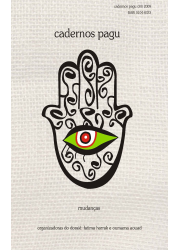Resumo
No ocidente, o tema da condição das mulheres no Islã está ligado à representação que geralmente se faz do Islã e dos muçulmanos. É uma representação constituída por estereótipos, esquematizações reducionistas e por confusões conceituais. A realidade do Islã e das sociedades muçulmanas possui muito mais nuances e freqüentemente não corresponde às idéias estabelecidas. A condição de inferioridade e precariedade a que está confinada a maior parte das mulheres muçulmanas, revela principalmente a hegemonia de uma mentalidade e de um sistema patriarcal que instrumentaliza sua leitura da religião para legitimar as situações de dominação, de violência e de exclusão em relação às mulheres. Partindo desta constatação, a autora propõe uma outra leitura do Islã e uma reflexão sobre a noção de igualdade no Alcorão e Sunna, na sua relação com o contexto da revelação, as finalidades da Chari’a e as perspectivas de evolução que podem revelar o referencial islâmico. Este trabalho de base é passível de reduzir as distâncias entre os princípios de igualdade entre os sexos inscritos nas convenções internacionais e seu equivalente no Islã.
Abstract
The Western idea relative to Islamic women’s status is linked to the representations generally held on Islam and Muslim people. These representantions are riddled by esterotypes, reductionist schemas and conceptual confusions. Islam and Muslim societies’ reality is much more nuanced and common held ideas do not correspond to it. The inferior status and poverty in which most of Muslim women are confined show the hegemony of a mentality and a patriarchal system that uses its readings of religion in order to legitimate the domination, violence and exclusion of women. Beginning with this idea, the author proposes another reading of Islam and a reflection about the equality notions in the Coran and in the Sunna in the context of revelation, Chari’a objectives and the perspectives of evolution that may reveal the Islamic ways. Working at these roots it may be possible to reduce the distance between the sexes equality principles written at the international conventions and its Islam equivalents.
Key Words: Women, Iguality, Islam
Referências
ACHOUR, Tahar Ben. Maqâssid al-sharî‘a al islâmia. 3e éd. Société tunisienne de distribution, 1988.
AL-ANSSARI, F. Al-moustalah al-ùsûli ‘inda Al-Shâtibî. Casablanca, Edit.al-Najâh al-Jadida, 2003.
AL-SHÂTIBÎ, Abû Isshaâq. Al-mouâfaqâte fi ùssoul al-sharî‘a. 2e éd.
Bayrût, Edição Dar al-ma‘rifa, Tomo 4, 1975.
BERQUE, V.J. L’éternel féminin est rendu à sa dignité. In: Le Coran, essai de traduction. Paris, Edition Albin Michel, 2002

